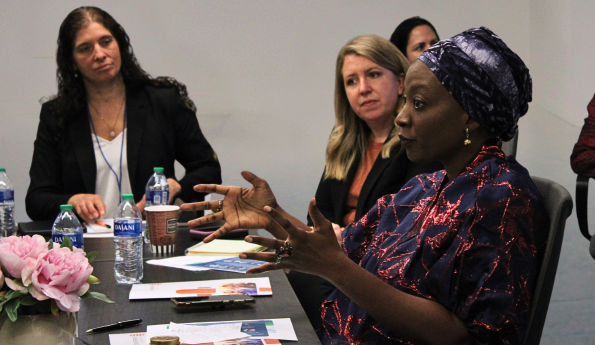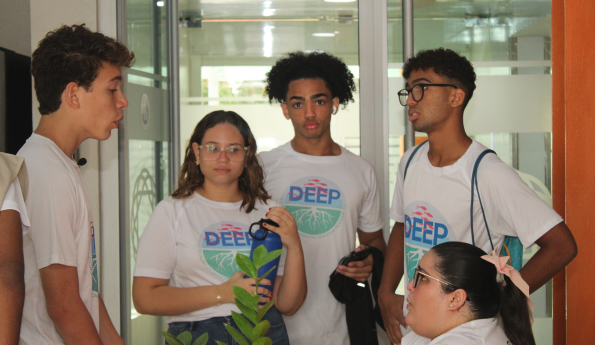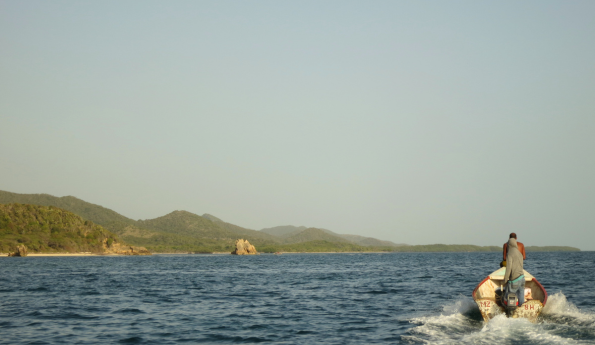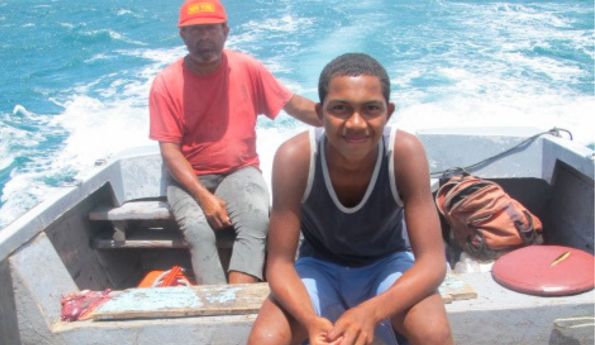The theme of this year’s World Water Day is “Water for Peace.” While lack of water can be a source of conflict, efforts to conserve and share water resources can be a means of uniting communities. When clean water is abundant and available to all, communities can thrive. Counterpart’s food systems and governance projects work to build resilience against environmental threats, such as climate change, through sustainable water practices and management. We also support the next generation of marine biologists to combat threats to precious water sources through an education and mentorship program.
Read the stories below to learn more about how we’re helping communities build brighter futures through sustainable water.
Water Conservation Practices Strengthen the Resiliency of Food Systems
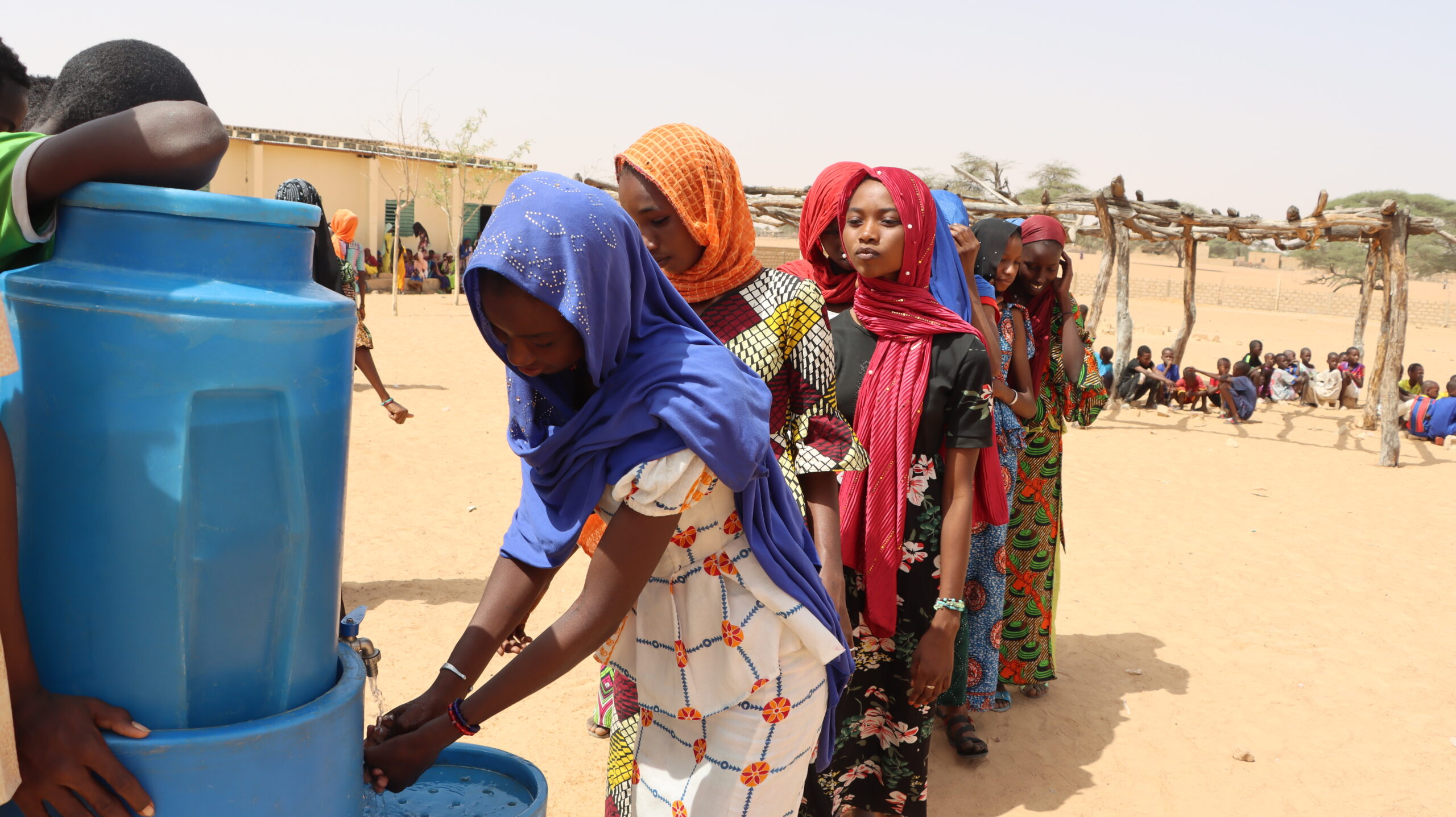
Students in Senegal learn proper hand washing techniques as part of our McGovern-Dole project.
Through the USDA McGovern-Dole International Food for Education and Child Nutrition program, Counterpart strengthens the resiliency of food systems by fostering the conservation of resources, particularly water. Counterpart supports sustainable water practices in three ways: consumption, management, and stewardship initiatives. Read more about how our McGovern-Dole projects in Senegal, Mauritania, and Mozambique address water conservation through improved agricultural techniques, water, sanitation, and hygiene interventions among school children, increasing access to latrines, and improving government management of water.
Love of the Ocean Goes DEEP
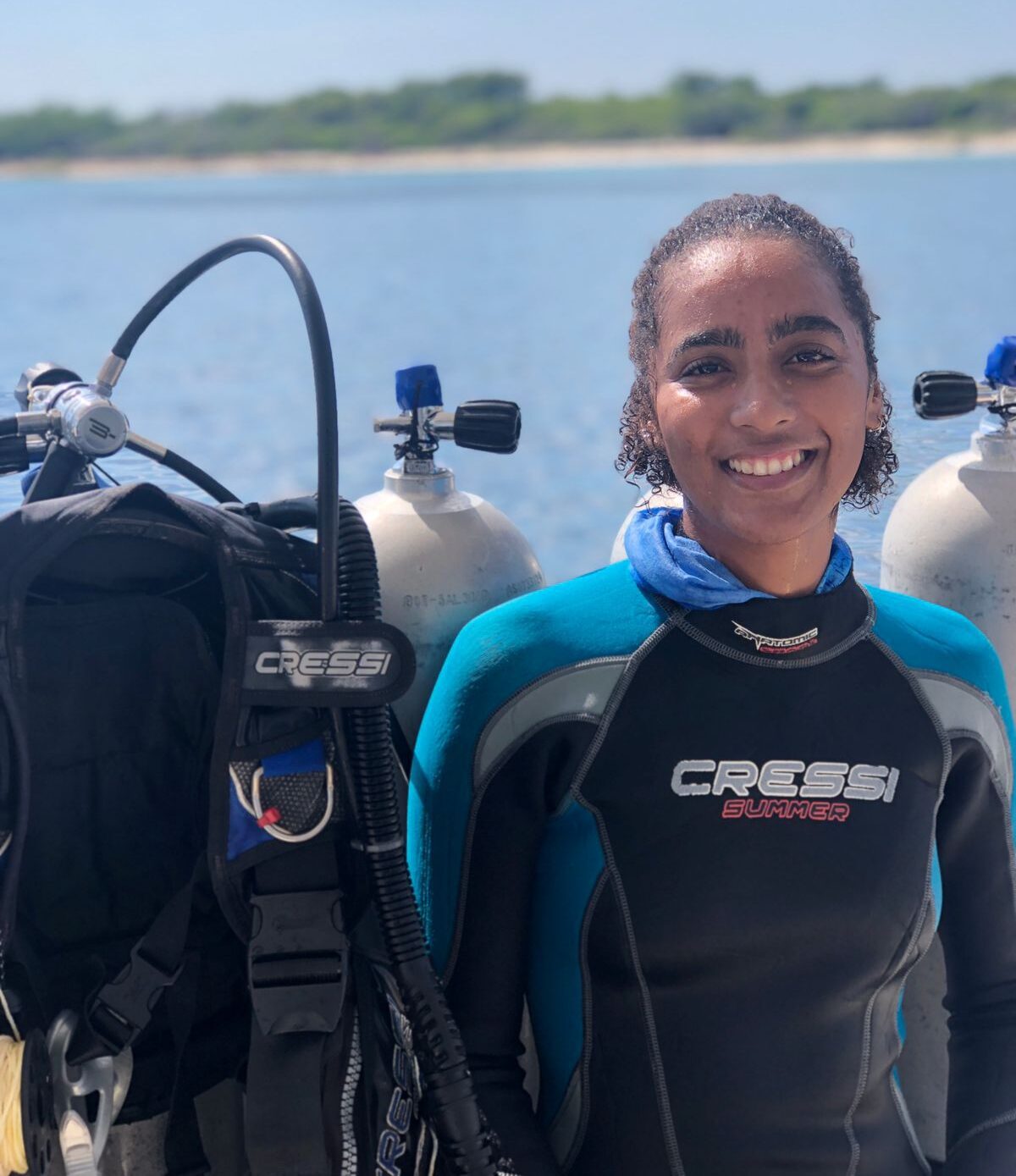
Andreina Valdez prepares to scuba dive as part of her research at the Dominican Foundation for Marine Studies.
Andreina Valdez always loved nature, but when her high school biology teacher introduced her to the wonders of the ocean, it sparked a curiosity. Valdez was trained to be a Near Peer Mentor in our Coastal Climate Resiliency Program as a volunteer during her university studies. The activity places older, more experienced mentors with younger students in the Dominican Environmental Education Program (DEEP). Read more about how Valdez shares her love of the ocean with young students who now understand the importance of conservation.
Anchoring Sustainable Partnerships at Home
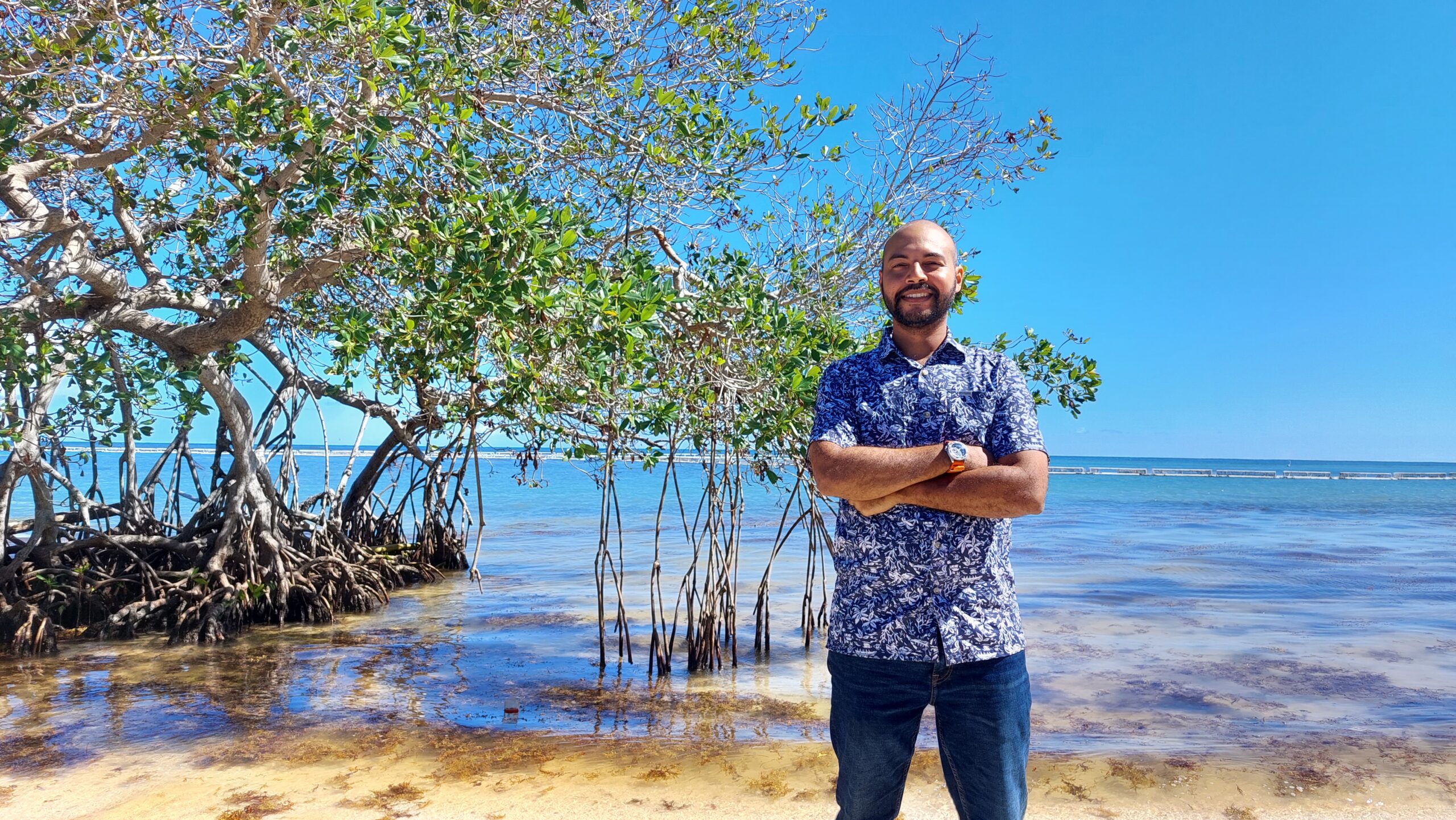
Daniel Veras serves in the Near Peer Mentorship Program, which places older, more experienced mentors with younger students to encourage environmental education.
Daniel Veras didn’t grow up on the coast of the Dominican Republic, but he remembers the first time he saw the ocean while visiting his mom’s brother one summer. His uncle was a fisherman and invited young Veras to venture out in his boat. His imagination came to life while touring the mangroves and his love of science was born. He now works at the Punta Cana Group Foundation as an ornamental fish breeding coordinator and he’s giving back to his community by serving in the Near Peer Mentorship Program which places older, more experienced mentors with younger students. Read more about how young Dominicans are becoming invested in creating a sustainable future for the island nation.
Bangladesh Civil Society Forges New Partnerships to Build Environmental Resilience
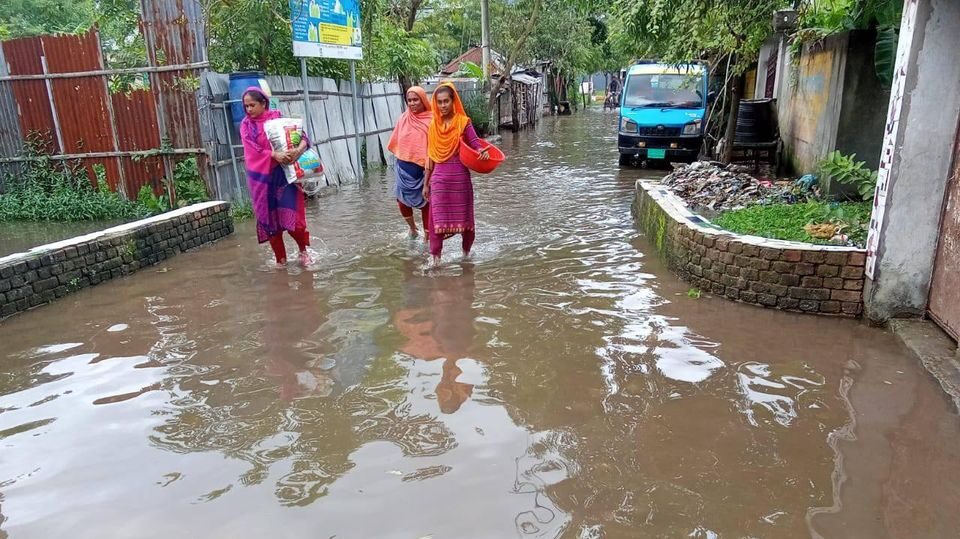
Waterlogging is a persistent environmental threat in southwestern Bangladesh. Photo courtesy of Sushilan Consortium.
Waterlogging is a persistent environmental threat in southwestern Bangladesh. The Sushilan Consortium, a multi-stakeholder initiative supported by Counterpart’s Promoting Advocacy and Rights project, formed to help to strengthen their response to waterlogging and other threats due to climate change. The group of local organizations dedicated to building environmental resilience are working to improve water and sanitation and waste management by promoting cross-sectoral partnerships and good governance. Read more about how the Sushilan Consortium is mobilizing civil society and supporting responsive local government that addresses citizen priorities.
Improving Clean Water Access in Rural Niger
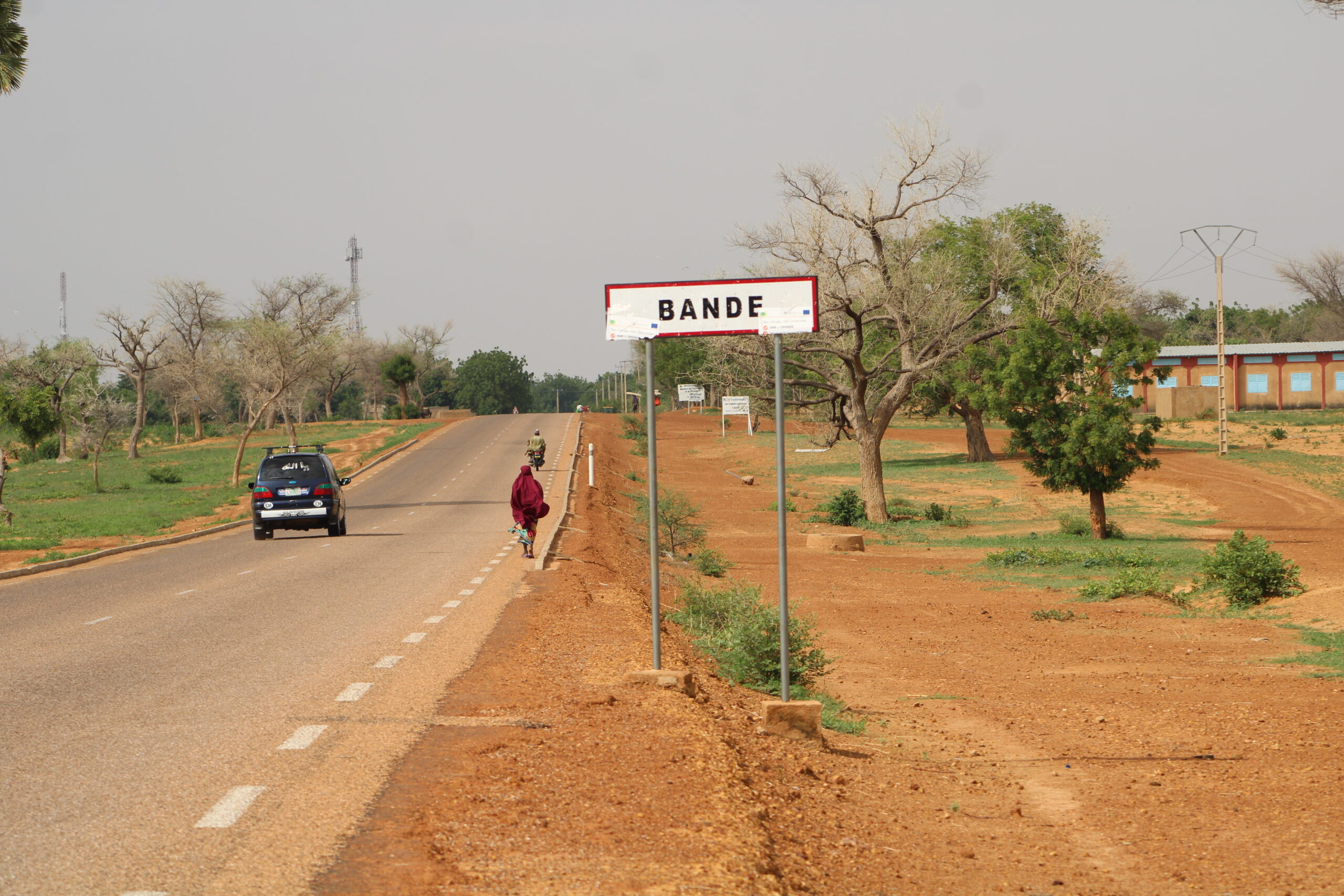
Community members in the commune of Bandé in rural Niger are working to improve access to clean drinking water through enhancing local governance.
Community members in Bandé identified the supply of clean drinking water as the rural Nigerien commune’s most urgent need and formed a committee to improve public service delivery. However, the local government lacks the capacity to provide basic public services. Counterpart’s Resilient Governance in Niger project, “Jagoranci,” works with Bandé’s communal leadership to develop a strategy for improving access to clean drinking water. Read more about how we’re helping to develop the capacity of local authorities to provide basic services and supporting partner communes to devise and implement visible service improvement plans.



